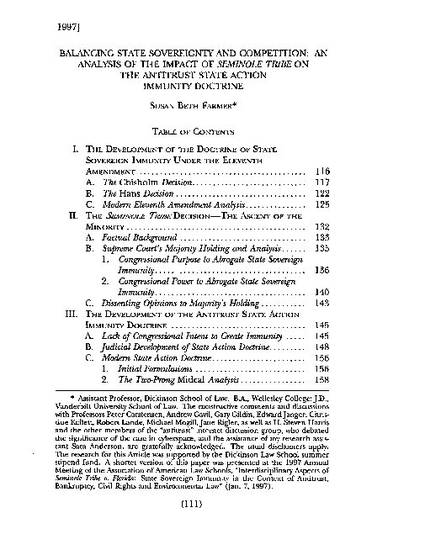
The great impact of the Seminole Tribe v. Florida decision will likely be felt in the range of federal causes of action that have exclusive remedies in federal court. Antitrust cases are among such causes of action. In seeking to avoid antitrust liability, defendants have invoked the protections of the antitrust state action doctrine, which immunizes only that anticompetitive activity imposed and supervised by states. This immunity bars suits against state and private actors alike. After Seminole Tribe, state defendants will escape all antitrust liability, whether or not the traditional requirements of the state action doctrine have been met. Thus, the state action doctrine is likely to be transformed into an antitrust exemption for private party defendants only, while state governmental entities will be completely protected from suit in federal court by constitutional sovereign immunity under the Eleventh Amendment.
Available at: http://works.bepress.com/susan_farmer/2/
